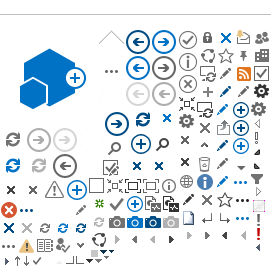Linguistic Minorities
A linguistic minority is a community that uses a language different from the one spoken by the national majority. So-called autochthonous, or historical, linguistic minorities such as the Basques or the German-speaking South Tyroleans, have lived in their regions for a long time before the formation of nation-states and the establishment of national borders made them "minorities". Groups that migrated in the more recent past are called allochthonous or "new" minorities. The Turkish population of Germany or Northern Africans in France are examples of such a minority.
Three historical linguistic minorities live within the area of the ID-Coop project: the Ladins in Trentino-South Tyrol and Belluno, the Slovenes in Udine, Gorizia and Trieste, and the Friulians in Udine, Pordenone and Gorizia. They speak the language of a neighboring state (Slovenes) or a language specific to their region (Ladins, Friulians). All of them are legally recognized, but the specific minority rights and their implementation differ significantly from one region to another. This makes it more difficult for minorities to collaborate and interact with each other.
For further information on the three minorities click below:
The Slovenes
The Friulians
The Ladins
References:
General:
Benedikter, Thomas, Karina Zabielska & Emma Lantschner, eds. (2008). Europe's ethnic mosaic : a short
guide to minority rights in Europe. Bozen: Eurac Research.
Poggeschi, Giovanni (2010). I diritti linguistici: Un'analisi comparata. Roma: Carocci editore.
Rautz, Günther & Gabriel N. Toggenburg (2012). "The Protection of Minorities in Europe – A legal
compendium leading from A-Z". Trento: Autonomous Region Trentino-South Tyrol.
Slovenes:
Hren, Karl & Martin Pandel, ed. (2012). Ein Jahr danach die Ortstafelregelung 2011 und was daraus
wurde. Klagenfurt: Hermagoras.
Malle, Augustin (2003). „Die Kärntner Slowenen".
Pirker, Jürgen (2013). Wir sind Kärnten : Jugend, Begegnung und politische Bildung in
Volksgruppenfragen = Mi smo Koroška. Baden-Baden: Nomos.
Friulians:
Cisilino, William, ed. (2006). Friulano lingua viva: la comunità linguistica friulana. Udine: Provincia di Udine.
Agenzia regionale per la lingua friulana (2013). "La popolazione friulanofona".
MIMI (2010)."Legal Country Study: Italy". Bozen: Eurac.
Voltmer, Leonhard. "Friulaner". Bozen: Eurac.
Ladins:
Hilpold, Peter & Christoph Perathoner. "Die Ladiner - Eine Minderheit in der Minderheit". Bozen: Athesia.
Landesinstitut für Statistik Autonome Provinz Bozen (2012). "Statistisches Jahrbuch 2012".
Servizio statistica della Provincia Autonoma di Trento (2012). "15° Censimento della popolazione e delle
Voltmer, Leonhard. "Dolomitenladiner". Bozen: Eurac.
